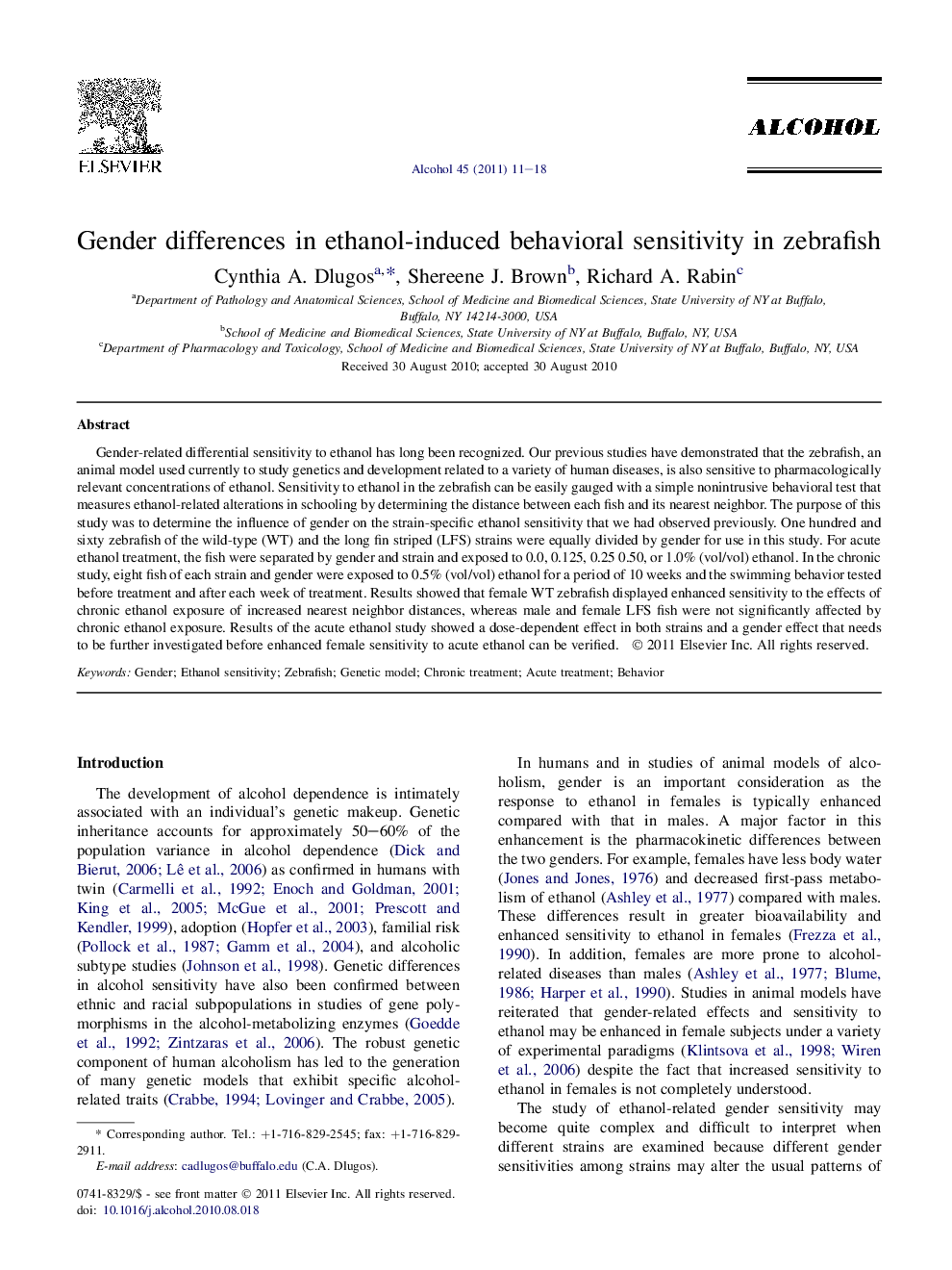| Article ID | Journal | Published Year | Pages | File Type |
|---|---|---|---|---|
| 1067062 | Alcohol | 2011 | 8 Pages |
Abstract
Gender-related differential sensitivity to ethanol has long been recognized. Our previous studies have demonstrated that the zebrafish, an animal model used currently to study genetics and development related to a variety of human diseases, is also sensitive to pharmacologically relevant concentrations of ethanol. Sensitivity to ethanol in the zebrafish can be easily gauged with a simple nonintrusive behavioral test that measures ethanol-related alterations in schooling by determining the distance between each fish and its nearest neighbor. The purpose of this study was to determine the influence of gender on the strain-specific ethanol sensitivity that we had observed previously. One hundred and sixty zebrafish of the wild-type (WT) and the long fin striped (LFS) strains were equally divided by gender for use in this study. For acute ethanol treatment, the fish were separated by gender and strain and exposed to 0.0, 0.125, 0.25 0.50, or 1.0% (vol/vol) ethanol. In the chronic study, eight fish of each strain and gender were exposed to 0.5% (vol/vol) ethanol for a period of 10 weeks and the swimming behavior tested before treatment and after each week of treatment. Results showed that female WT zebrafish displayed enhanced sensitivity to the effects of chronic ethanol exposure of increased nearest neighbor distances, whereas male and female LFS fish were not significantly affected by chronic ethanol exposure. Results of the acute ethanol study showed a dose-dependent effect in both strains and a gender effect that needs to be further investigated before enhanced female sensitivity to acute ethanol can be verified.
Related Topics
Life Sciences
Biochemistry, Genetics and Molecular Biology
Biochemistry
Authors
Cynthia A. Dlugos, Shereene J. Brown, Richard A. Rabin,
